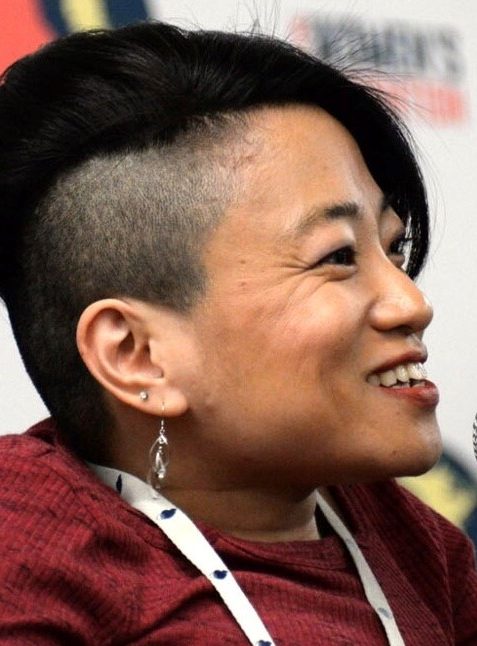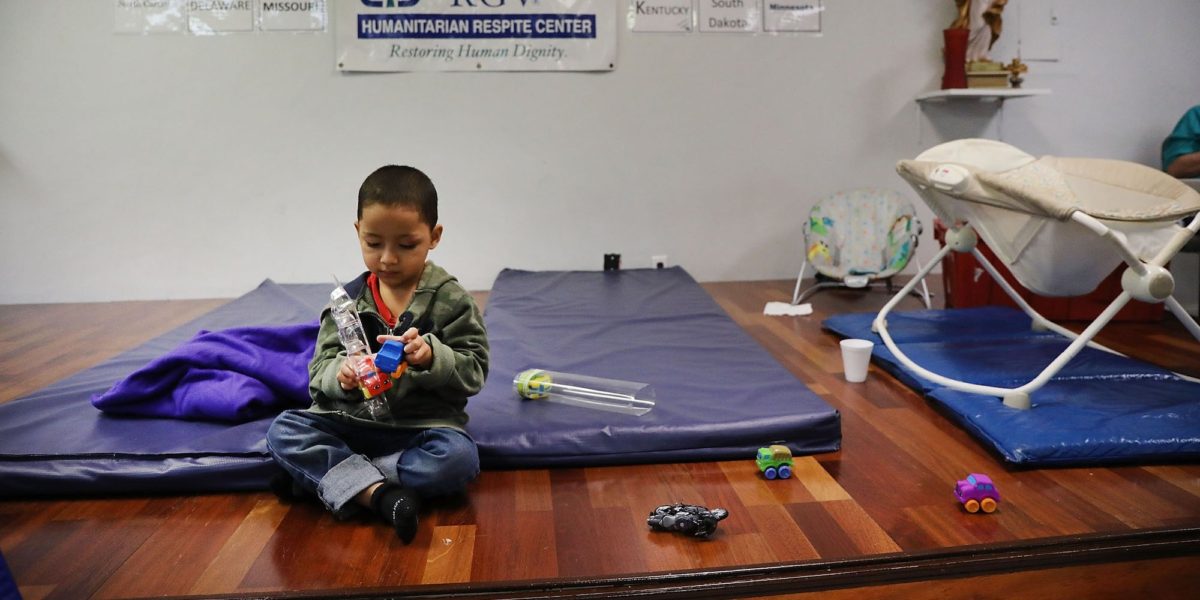By Guest Contributor: Mia Ives-Rublee (@SeeMiaRoll)
The cries of children echo in my head after listening to the ProPublica recording of children crying at a detention center. It reminds me of my own experiences as a young child.
I was adopted at the age of three from South Korea. My biological family left me at an orphanage when I was a few days old and I lived at an orphanage for almost a year before going to a foster home.
I spent almost a year with my foster family and had grown attached to my foster mother. It was extremely traumatic for me to leave my foster family. At the time, I was too young to know what was going on. All I knew was that my foster mother was not near me and that I was in a strange environment.
I remember spending many nights literally crying in terror and my adoptive mother trying to sooth me. This happened for several years after my adoption.
Being taken from the people you know and love for any reason creates trauma that will last a life time. Studies have shown that adoptees and foster children are more likely to experience attachment disorders and mental health issues as adults. These kids are more likely to have anxiety. These issues stem from leaving our birth families, living in orphanages, going through foster homes, and not knowing who would care for us.
I still deal with issues around trust and have anxiety attacks. There are nights where I am reminded of my trauma and I have difficulty doing basic chores due to crippling anxiety. I also have extreme insomnia and can spend days without sleeping. One time, I accidently overdosed on anxiety and sleep medicine because I hadn’t slept in days. Luckily, I survived.
My trauma has also made it extremely difficult for me to create healthy relationships with others. At times, I can seem clingy, and at other times, too standoffish. I had a difficult time in primary and secondary school because of social anxiety. Leaving friends after overnight camps or sleepovers felt like torture. I have spoken to many other adoptees, both in person and online; and many deal with similar issues.
Seeing children forcibly taken from families recently has made it hard for me to function at work and at home. I have seen the sentiment shared by other adoptees on social media adoptee support groups. Adoptees know all too well how the trauma of being separated from family can ripple throughout our lives, affecting our ability to work, to function at home, and to create relationships.
The children taken by ICE and CBP experience trauma at a much higher level than I did. They are being shut in cages, and adults are told not to touch or comfort the children. Older children are teaching others how to change diapers because the detention workers are not changing them frequently enough. These children are being neglected while their futures remain in the air. They have no idea when or if they will ever return to their families. The trauma they experience will be irreparable. The damage our government is doing to these children is immeasurable. Yet the children will be expected to pick up the pieces and become functioning members of society.
We, Americans cannot ignore the horrors that are happening at our borders and in our communities because it makes us uncomfortable. It is imperative that we ensure that children not needlessly suffer from the same mental health symptoms that I continue to face on a daily basis. Right now, the Trump Administration is thinking of releasing a new policy to stop family separation. The policy will keep families indefinitely in detention centers. This is not the solution. We need a law that keeps families together and gives them an opportunity to seek a better life.
I implore every person to take action to improve the lives of people who are undocumented. Please contact your representatives to demand they pass the Keep Families Together Act and the DREAM act. Ask them to work on legislation that will ease the process of obtaining visas and citizenship.
Also, if you can, please donate to organizations that are helping reunite children with their families and provide legal representation to undocumented individuals, including the Texas Civil Rights Project, RAICES Bond Fund, ACLU, Young Center for Immigrant Children’s Rights, and Las Americas Immigrant Advocacy Center. We, the United States of America, must become the society we so often proclaim to be.

Mia Ives-Rublee is a Disabled Transracial Asian American adoptee and civil rights activist. She helped organize the 2017 Women’s March and founded Women’s March Disability Caucus. Mia holds her MSW from the University of North Carolina at Chapel Hill. You can follow Mia on Twitter at @SeeMiaRoll.
Learn more about Reappropriate’s guest contributor program and submit your own writing here.

